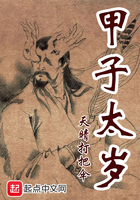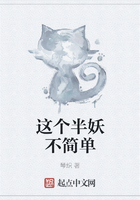"An' him a Chink," Billy mourned disconsolately. He turned to Saxon. "They ought to be some new country for us white folks to go to. Gosh!--we're settin' on the stoop all right, all right."
"But, of course, that was unusual," Glunston hastened to qualify.
"There was a failure of potatoes in other districts, and a corner, and in some strange way Sing Kee was dead on. He never made profits like that again. But he goes ahead steadily. Last year he had four thousand acres in potatoes, a thousand in asparagus, five hundred in celery and five hundred in beans. And he's running six hundred acres in seeds. No matter what happens to one or two crops, he can't lose on all of them."
"I've seen twelve thousand acres of apple trees," Saxon said.
"And I'd like to see four thousand acres in potatoes."
"And we will," Billy rejoined with great positiveness. "It's us for the San Joaquin. We don't know what's in our country. No wonder we're out on the stoop."
"You'll find lots of kings up there," Gunston related. "Yep Hong Lee--they call him 'Big Jim,' and Ah Pock, and Ah Whang, and--then there's Shima, the Japanese potato king. He's worth several millions. Lives like a prince."
"Why don't Americans succeed like that?" asked Saxon.
"Because they won't, I guess. There's nothing to stop them except themselves. I'll tell you one thing, though-- give me the Chinese to deal with. He's honest. His word is as good as his bond. If he says he'll do a thing, he'll do it. And, anyway, the white man doesn't know how to farm. :EIven the up-to-date white farmer is content with one crop at a time and rotation of crops. Mr. John Chinaman goes him one better, and grows two crops at one time on the same soil. I've seen it--radishes and carrots, two crops, sown at one time."
"Which don't stand to reason," Billy objected. "They'd be only a half crop of each."
"Another guess coming," Gunston jeered. "Carrots have to be thinned when they're so far along. So do radishes. But carrots grow slow. Radishes grow fast. The slow-going carrots serve the purpose of thinning the radishes. And when the radishes are pulled, ready for market, that thins the carrots, which come along later. You can't beat the Chink."
"Don't see why a white man can't do what a Chink can," protested Billy.
"That sounds all right," Gunston replied. "The only objection is that the white man doesn't. The Chink is busy all the time, and he keeps the ground just as busy. He has organization, system.
Who ever heard of white farmers keeping books? The Chink does. No guess work with him. He knows just where he stands, to a cent, on any crop at any moment. And he knows the market. He plays both ends. How he does it is beyond me, but he knows the market better than we commission merchants.
"Then, again, he's patient but not stubborn. Suppose he does make a mistake, and gets in a crop, and then finds the market is wrong. In such a situation the white man gets stubborn and hangs on like a bulldog. But not the Chink. He's going to minimize the losses of that mistake. That land has got to work, and make money. Without a quiver or a regret, the moment he's learned his error, he puts his plows into that crop, turns it under, and plants something else. He has the savve. He can look at a sprout, just poked up out of the ground, and tell how it's going to turn out--whether it will head up or won't head up; or if it's going to head up good, medium, or bad. That's one end. Take the other end. He controls his crop. He forces it or holds it back. with an eye on the market. And when the market is just right, there's his crop, ready to deliver, timed to the minute."
The conversation with Gunston lasted hours, and the more he talked of the Chinese and their farming ways the more Saxon became aware of a growing dissatisfaction. She did not question the facts. The trouble was that they were not alluring. Somehow, she could not find place for them in her valley of the moon. It was not until the genial Jew left the train that Billy gave definite statement to what was vaguely bothering her.
"Huh! We ain't Chinks. We're white folks. Does a Chink ever want to ride a horse, hell-bent for election an' havin' a good time of it? Did you ever see a Chink go swimmin' out through the breakers at Carmel?--or boxin', wrestlin', runnin' an' jumpin'for the sport of it? Did you ever see a Chink take a shotgun on his arm, tramp six miles, an' come back happy with one measly rabbit? What does a Chink do? Work his damned head off. That's all he's good for. To hell with work, if that's the whole of the game--an' I've done my share of work, an' I can work alongside of any of 'em.
But what's the good? If they's one thing I've learned solid since you an' me hit the road, Saxon, it is that work's the least part of life. God!--if it was all of life I couldn't cut my throat quick enough to get away from it. I want shotguns an' rifles, an' a horse between my legs. I don't want to be so tired all the time I can't love my wife. Who wants to be rich an' clear two hundred an' forty thousand on a potato deal! Look at Rockefeller. Has to live on milk. I want porterhouse and a stomach that can bite sole-leather. An' I want you, an' plenty of time along with you, an' fun for both of us. What's the good of life if they ain't no fun?"
"Oh, Billy!" Saxon cried. "It's just what I've been trying to get straightened out in my head. It's been worrying me for ever so long. I was afraid there was something wrong with me- -that I wasn't made for the country after all. All the time I didn't envy the San Leandro Portuguese. I didn't want to be one, nor a Pajaro Valley Dalmatian, nor even a Mrs. Mortimer. And you didn't either. What we want is a valley of the moon, with not too much work, and all the fun we want. And we'll just keep on looking until we find it. And if we don't find it, we'll go on having the fun just as we have ever since we left Oakland. And, Billy . . . we're never, never going to work our damned heads off, are we?"
"Not on your life, " Billy growled in fierce affirmation.
They walked into Black Diamond with their packs on their backs.















